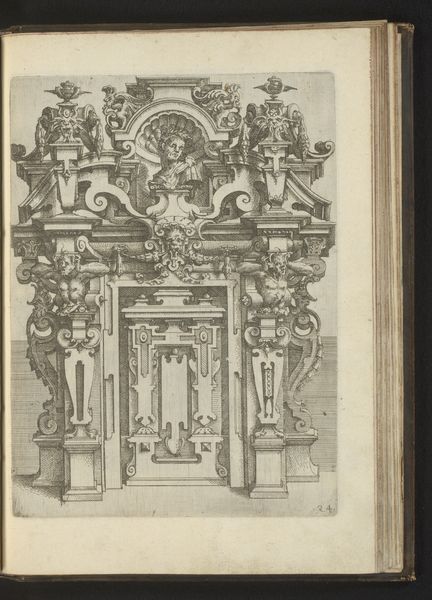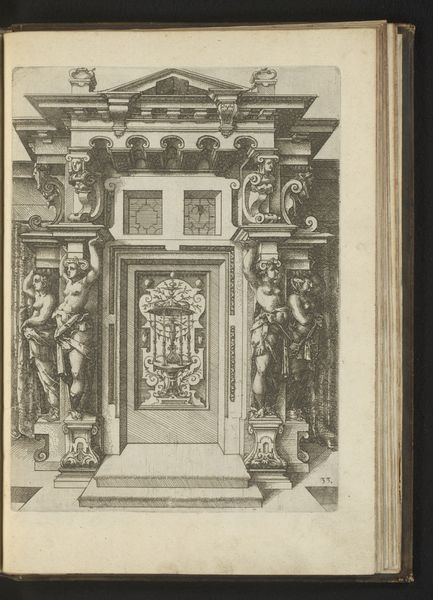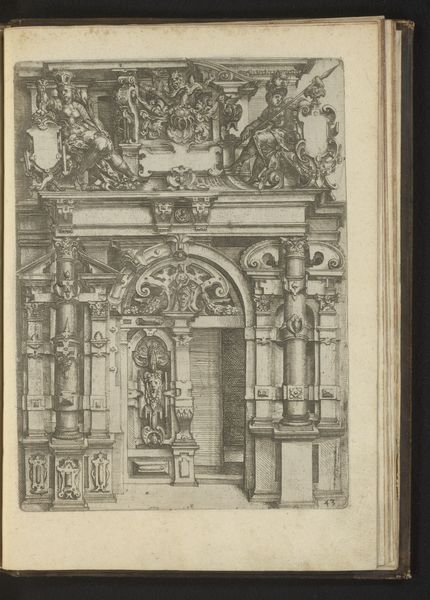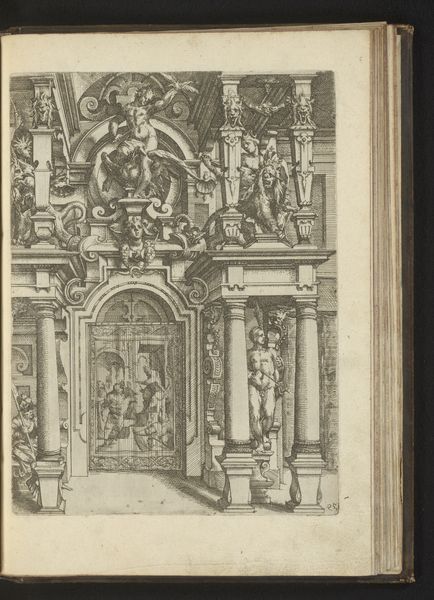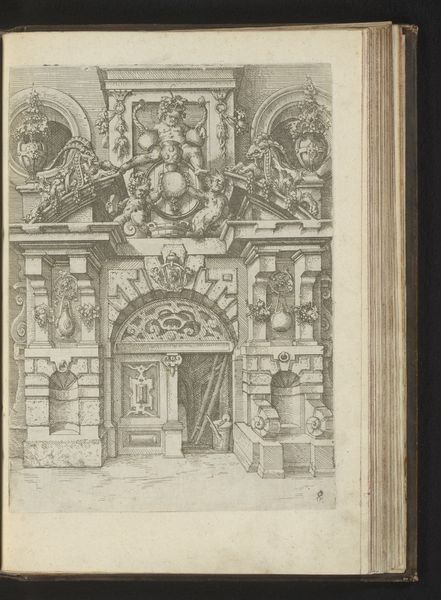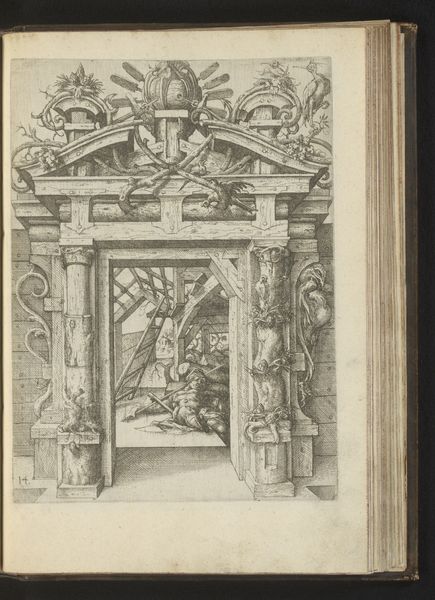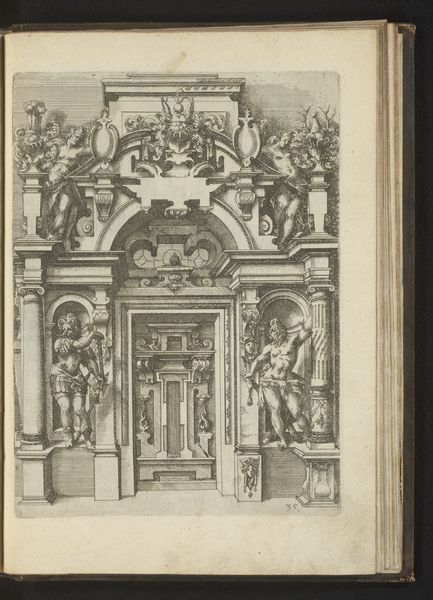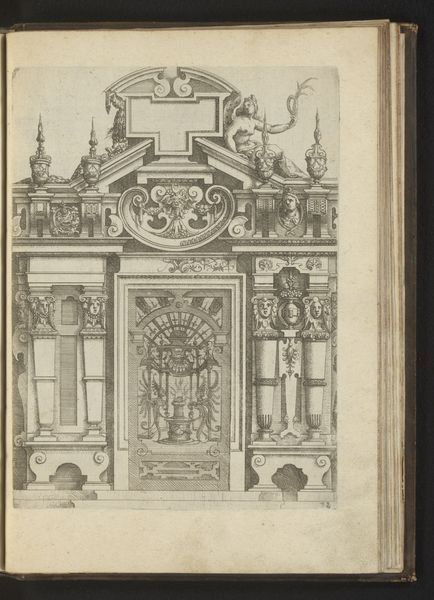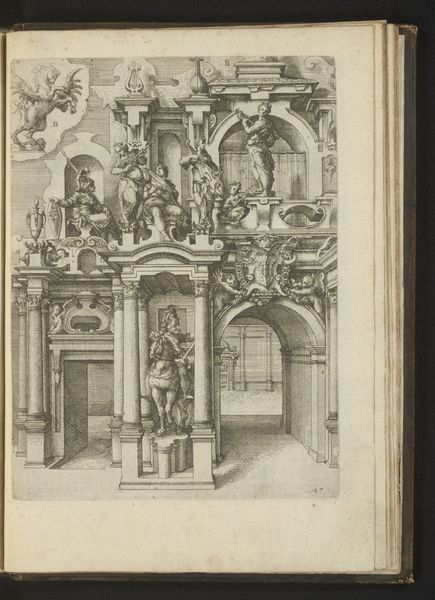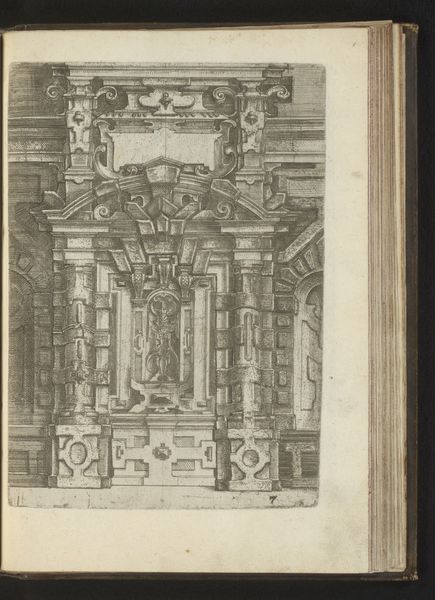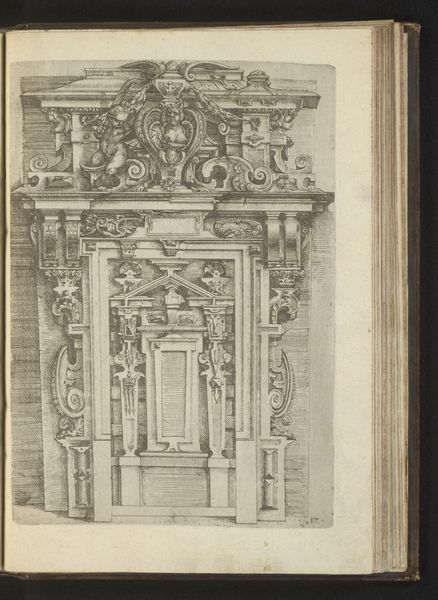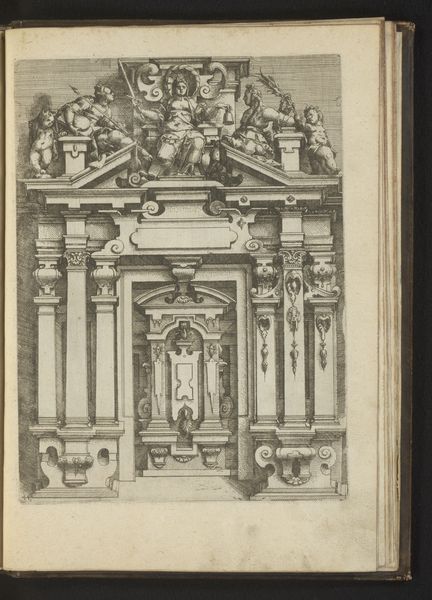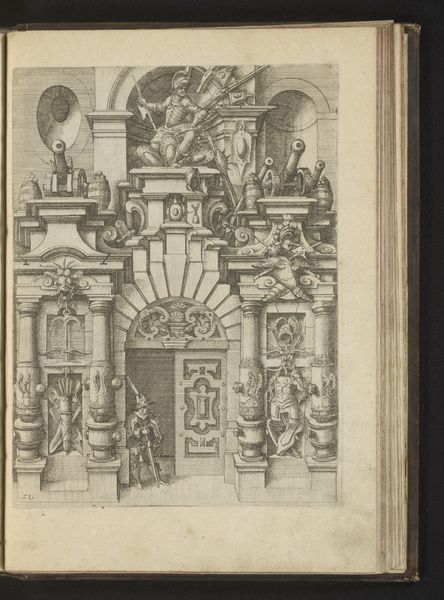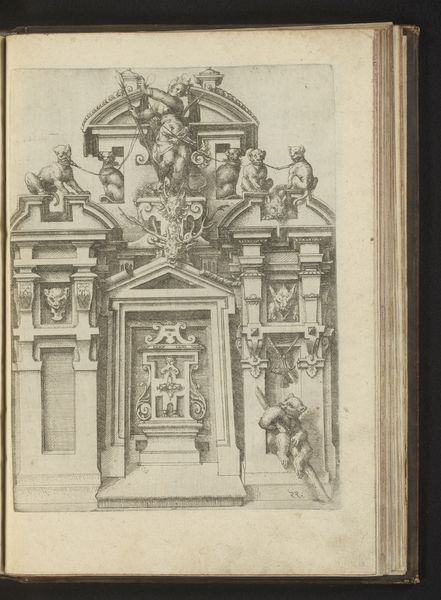
Portaal met nissen met daarin de beelden van Diana en Venus en bovenaan een wapenschild en wapenuitrustingen 1593 - 1595
0:00
0:00
drawing, ink, engraving, architecture
#
pen and ink
#
drawing
#
pen drawing
#
figuration
#
form
#
11_renaissance
#
ink
#
history-painting
#
northern-renaissance
#
engraving
#
architecture
Dimensions: height 256 mm, width 186 mm
Copyright: Rijks Museum: Open Domain
Editor: This is Wendel Dietterlin's "Portal with Niches with Statues of Diana and Venus, with a Coat-of-Arms and Weaponry Above," created between 1593 and 1595, using pen, ink, and engraving. I’m really struck by the ornate architectural details, it’s almost overwhelming! What can you tell me about its purpose or its place in the history of art? Curator: Well, consider this work as part of a larger visual culture where architectural treatises were becoming increasingly popular. Dietterlin wasn’t just designing a portal; he was participating in the construction of an ideal, reflecting and reinforcing notions of power, status, and taste. These images circulated among artists, architects, and patrons, influencing the built environment. Editor: So, it's not necessarily a record of an existing building, but more of a suggestion, an ideal design being presented? Curator: Precisely. And think about the figures of Diana and Venus, goddesses associated with hunting and love, respectively. Their presence transforms the architectural element into a statement about princely virtues and aspirations. It's not just decoration; it's political messaging. How do you think the inclusion of a coat-of-arms further reinforces this? Editor: It seems to solidify it, right? The coat-of-arms would make it more specific to a family or a person, almost like claiming the ideal presented is theirs. It ties the idea of grandeur and virtue directly to a particular lineage or patron. Curator: Exactly. This drawing encapsulates how art serves to construct and project identities, both individual and collective, within a complex social and political landscape. Editor: That’s a completely different way of looking at what I originally thought was just a pretty drawing! It really makes you consider who this piece was for and what it was trying to say about them. Thanks for sharing this! Curator: My pleasure! Understanding art involves recognizing its public role and the ideologies it carries.
Comments
No comments
Be the first to comment and join the conversation on the ultimate creative platform.
